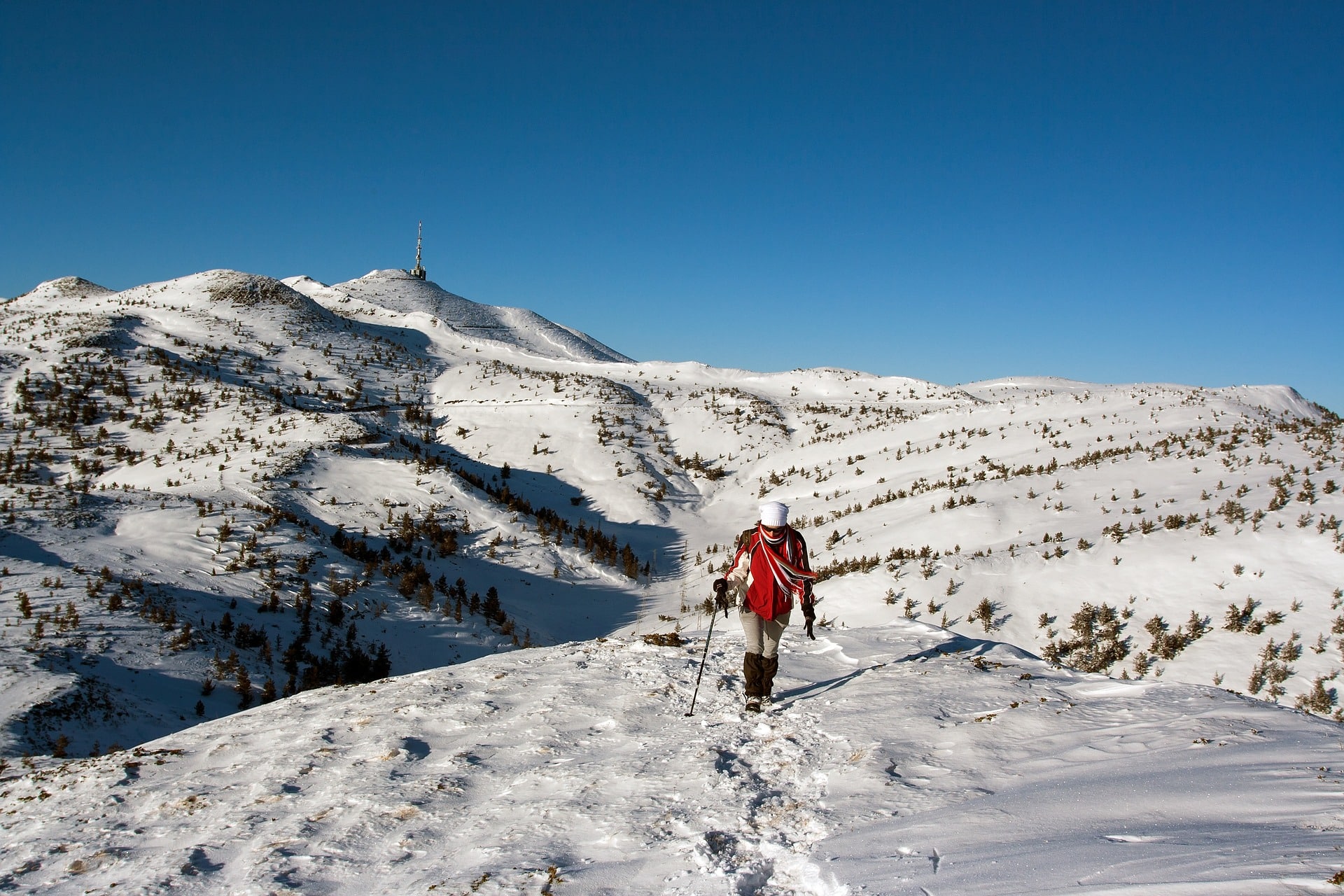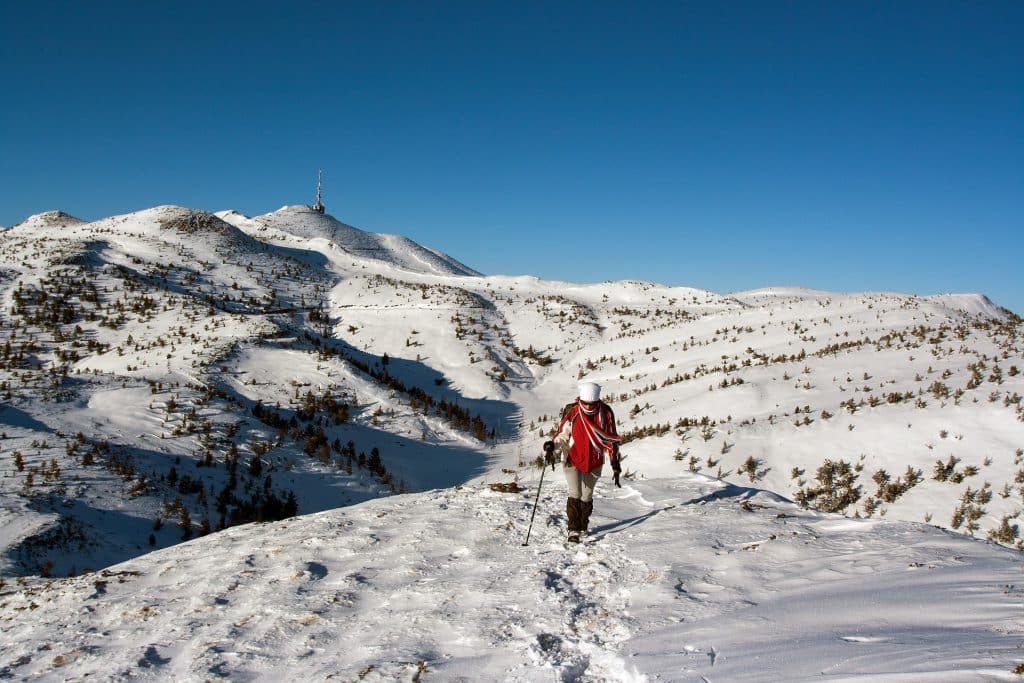How to Stay Warm at 15 Below
Eight essential tips for staying warm in winter (hint: you’re doing socks wrong) from a New England extreme cold expert.

Keep extra-warm this winter with these eight expert tips.
Photo Credit : Pixabay
Photo Credit : Pixabay
Getting advice from Dr. Murray Hamlet on how to keep warm on days of bitter cold is like sitting down with Julia Child as she guides you to making her famous boeuf bourguignon. Hamlet is the retired director of the Cold Research Division for the U.S. Army Research Institute of Environmental Medicine in Natick, Massachusetts. During the 33 years he spent immersed in understanding what extreme cold can do to the human body, his mission was to ensure that soldiers who lived in polar and high-mountain environments would stay warm, dry, and safe.
I met Hamlet more than 20 years ago, and I hear his words of wisdom in my head every winter. Especially when I put on socks before going on a hike — he says 99 percent of us are doing socks wrong. (More on that below.)
Hamlet offers an important message with a light touch. “Clothing is like sex,” he jokes. “The first part and the last part is most important. Gotta have the right underwear; gotta have the right coat and right hat and right mittens and socks and boots.”
Dr. Murray Hamlet’s 8 Essential Tips on Staying Warm
1. Shelve the cotton in cold weather. “I like cotton indoors as much as anyone, but cotton will kill you in cold. Cotton holds almost 40 percent of its weight in water, and your body will lose heat trying to get rid of the water.”
2. Protect your head. “Wear a good wool stocking cap, one you pull down over the face if necessary. Be sure to have a hood on your parka. You may only need the hood twice a winter, but when you need it to cut the wind, you really need it.”
3. Know the basics of layers. “The first layer must keep the skin cool and dry. It’s moisture management that’s key.” For this layer, he stressed materials that wick moisture away. “Then I use different weights of fleece. That’s the beauty of fleece. I mix and match the weights depending on the weather. Then a warm, breathable parka.”
4. Take good care of your hands… “I rub my hands with something that looks like hand cream, but it’s magic stuff. It was developed by the military to block bad things from penetrating the skin (commercial alternatives may have names like Gloves in a Bottle or Invisible Glove). Used underneath mittens, it will help keep your hands dry and warm. Then I use a thin neoprene liner. Over the liner I will put on Glacier Gloves. These are the gloves used by windsurfers.
5. …And your feet. Hamlet said how vital it is to keep feet warm and dry. Skiers, snowshoers, snowmakers, and anyone else who works and plays for hours outside in winter knows what it can feel like when feet get wet and cold. “At the start of winter I’ll spray my feet three times a week with a good antiperspirant. You want the antiperspirant to have aluminum chlorohydrate. After that, once a week is enough. This simple task will stop 50 to 75 percent of wet feet. And it’s wet feet that lead to so many cold feet injuries. If your feet do get wet, you must change socks. Powder the feet, and get new socks on.”
6. Do socks right. He says to look for heavy warm socks with fuzz — but then turn them inside out. “Do you ever see a sheep with fuzz on the inside?” he said. Socks need to draw heat and moisture away from the feet. Hamlet and a partner developed a sock for soldiers (with fuzz on the outside, of course), the model for which can be found here.
7. Eat and drink for the cold. “Doughnut lovers love me for saying this: You need more calories in winter. You need to eat more fatty, slow-burning foods. I eat greasy in the morning — doughnuts work for this. Carbohydrates in the afternoon, and greasy again at night. And drink at least one to two quarts of water each day. Dehydration can be as severe in winter as in summer.”
8. Make the most of your sleeping bag. “If you go winter camping, know that by insulating your head and hands at night with a stocking cap and hand liners you’ll double the effectiveness of the bag. Fluff up the bag before getting in. And since the moisture you carry into the bag will condense and make a wet, chilly bag, sit up in the bag before burrowing in. Be sure you’re dry. You’ll lose a pint of water into your sleeping bag at night, so when you awake you need to dry it. Fluff it and compress, fluff it and compress.”
See More:
8 Ways to Embrace the Cold That Are Normal Only for New Englanders
A Humorous Guide to Snow in New England
How to Drive in Winter
Mel Allen
Mel Allen is the fifth editor of Yankee Magazine since its beginning in 1935. His first byline in Yankee appeared in 1977 and he joined the staff in 1979 as a senior editor. Eventually he became executive editor and in the summer of 2006 became editor. During his career he has edited and written for every section of the magazine, including home, food, and travel, while his pursuit of long form story telling has always been vital to his mission as well. He has raced a sled dog team, crawled into the dens of black bears, fished with the legendary Ted Williams, profiled astronaut Alan Shephard, and stood beneath a battleship before it was launched. He also once helped author Stephen King round up his pigs for market, but that story is for another day. Mel taught fourth grade in Maine for three years and believes that his education as a writer began when he had to hold the attention of 29 children through months of Maine winters. He learned you had to grab their attention and hold it. After 12 years teaching magazine writing at the University of Massachusetts-Amherst, he now teaches in the MFA creative nonfiction program at Bay Path University in Longmeadow, Massachusetts. Like all editors, his greatest joy is finding new talent and bringing their work to light.
More by Mel Allen

